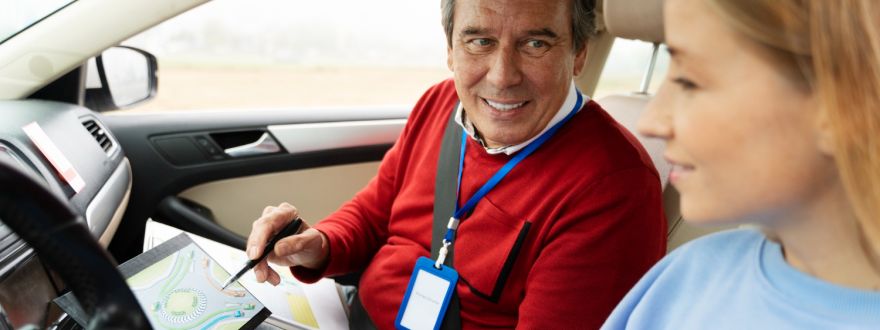
Testing out a potential new car with a test drive at the dealership is a crucial step in the car buying process, offering you firsthand experience of how the vehicle operates under real conditions. However, before you turn the ignition key and head out, it’s important to clarify a vital concern: Does your auto insurance cover a test drive at a dealership?
Understanding your coverage limits and the dealership's insurance can protect you from unexpected liabilities and financial strains in case of an accident during the test drive. This article explores how standard auto insurance policies may or may not extend to covering dealership test drives, key considerations for both consumers and auto dealers, and what measures you should take to ensure full protection during these trials.
Understanding Your Auto Insurance During a Dealership Test Drive
When planning to test drive a vehicle at a dealership, the first step is to verify your existing auto insurance policy's specifics. Most auto insurance policies generally extend some form of coverage to rented or loaned vehicles, which often includes dealership test drive vehicles. However, the level of coverage can vary significantly based on your policy terms.
Typically, whatever coverage and deductibles apply to your primary vehicle would also apply when you test drive a car at a dealership under your auto insurance. This means if you have comprehensive and collision coverage on your personal car, these protections will transfer to the test-drive vehicle. It's crucial to confirm this before stepping into a dealership by speaking directly with your insurance provider. Clarifying this can prevent any misunderstandings and potential financial liability should an accident occur during a test drive.
Dealership Test Drive Policy and Insurance
Dealerships usually carry a dealer’s open lot policy, which provides coverage for all the vehicles on their lot. This type of policy not only covers cars from theft or damage while parked on the lot but also generally includes liability coverage for when vehicles are taken out on test drives. However, the scope of this coverage can vary depending on the dealership’s specific insurance policy.
Before you test drive a car, ask the dealership about their test drive policy. It’s important to understand whether their insurance would cover any damages if you’re involved in an accident. Some dealers might also have a deductible that you could be responsible for in the event of an accident. Knowing the dealership's test drive policy can help you make an informed decision about whether or not to proceed under their coverage or to rely on yours.
Contributing Factors and Risk Management
The dealership's geographic location and the specific insurance laws in that state can influence the coverage details for test drives. For instance, some states may have requirements that all drivers, including those test-driving from dealerships, must have a minimum amount of liability insurance. If you’re test-driving in a state different from where you’re insured, this is a crucial factor to consider.
To manage risks effectively, always ensure that the salesperson or dealership provides a complete rundown of the vehicle’s functionality before you start the test drive. This not only familiarizes you with the vehicle but also minimizes the risk of accidents caused by unfamiliarity with vehicle controls. Moreover, it's advisable to drive cautiously, adhering to all traffic laws and avoiding aggressive driving behaviors that could lead to accidents.
Scenarios and Additional Coverage Options
It is also worth considering scenarios that might require additional coverage. For example, if you plan to test drive a significantly more expensive car than the one you currently own, your existing policy’s limits may not suffice to cover damages to the dealership vehicle in case of an accident. In such cases, it could be wise to seek a temporary increase in your coverage limits from your insurance provider.
Additionally, you might encounter dealership policies that require the driver to hold insurance above certain limits to take a high-value vehicle for a test drive. Ensuring you meet these requirements ahead of time can save you from any last-minute surprises and refusals.
For an enhanced layer of protection, some drivers opt for non-owner car insurance policies. These policies provide liability coverage for individuals who drive but do not own a vehicle, which can be a practical solution for frequent renters or test drivers.
Final Checks Before You Test Drive
Navigating the insurance requirements for a dealership test drive doesn't have to be complicated. With a clear understanding of your personal auto insurance coverage and the dealership's policies, you can step into any test drive with confidence. Always remember to clarify coverage details directly with your insurer and thoroughly discuss the test drive policy with the dealership. Taking these steps ensures that you are fully protected from unforeseen liabilities that could arise from an accident during a test drive.
If you have any questions about your auto insurance coverage or need guidance on how to secure the right insurance for your situation, we at J.F. Shaw Insurance Agency are here to help. Contact us today to ensure you're fully protected, whether you're behind the wheel of your own vehicle or testing out your future car at a dealership. Let us handle the complexities of car insurance while you enjoy the ride!



